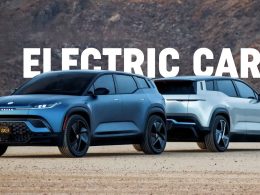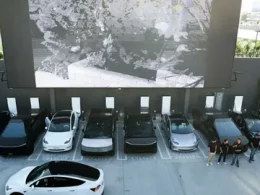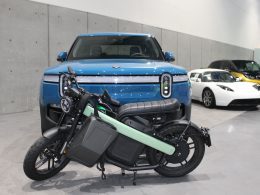Lordstown Motors, a startup electric vehicle (EV) company, is on the brink of bankruptcy following a dispute with its manufacturing partner, Foxconn. The Ohio-based company has struggled to meet its production targets and raise capital, and now faces an uncertain future as it attempts to resolve the ongoing dispute.
Lordstown Motors was founded in 2019 and quickly gained attention for its plan to manufacture electric pickup trucks at a former General Motors factory in Ohio. The company went public through a special purpose acquisition company (SPAC) merger in October 2020, raising over $600 million in the process.
However, Lordstown’s troubles began to emerge earlier this year when it revealed that it had only produced about 100 pre-production vehicles, far short of the 1,000 it had promised to produce by the end of 2020. The company’s CEO, Steve Burns, resigned in June amid allegations of misleading investors and inflating pre-orders.
The latest blow to the company came in April 2021, when Lordstown announced that Foxconn, its manufacturing partner, had pulled out of a deal to build electric vehicles for the startup. Foxconn had agreed to invest $50 million in Lordstown and help manufacture its electric Endurance pickup truck. However, the two companies clashed over the terms of the partnership, with Foxconn claiming that Lordstown had not made the necessary payments.
The dispute with Foxconn has put Lordstown’s future in doubt. The startup had been banking on the partnership to help it ramp up production of the Endurance pickup truck and secure more funding. Lordstown has said that it is looking for a new manufacturing partner, but finding one that can meet its needs could prove difficult.
Lordstown’s troubles come at a time when the electric vehicle market is booming. Major automakers such as Ford, General Motors, and Tesla have all announced plans to invest billions of dollars in EV production. However, startups like Lordstown face significant challenges in competing with established players. They must raise significant amounts of capital to fund research and development, manufacturing, and marketing. Additionally, they must convince consumers to switch to electric vehicles, which can be more expensive than gas-powered cars.
Lordstown’s struggles are a cautionary tale for other startups looking to enter the EV market. While the potential rewards can be huge, the risks are significant, and success is far from guaranteed.
In an interview with CNBC, Lordstown’s new CEO, Daniel Ninivaggi, acknowledged the challenges facing the company but remained optimistic about its future. “We have a great product, we have a great team, and we’re going to keep pushing forward,” he said.
However, many industry experts are skeptical that Lordstown can recover from its current predicament. “Lordstown has a long road ahead of it,” said Karl Brauer, executive analyst at iSeeCars.com. “The company needs to raise a significant amount of money to bring its product to market, and that’s going to be difficult given the current situation.”
Lordstown’s fate will be closely watched by investors and other EV startups looking to make their mark in a rapidly evolving industry. As the world transitions to electric vehicles, the challenges facing startups like Lordstown are only likely to become more pronounced. The lessons learned from Lordstown’s struggles will be invaluable for others looking to succeed in the highly competitive EV market.












